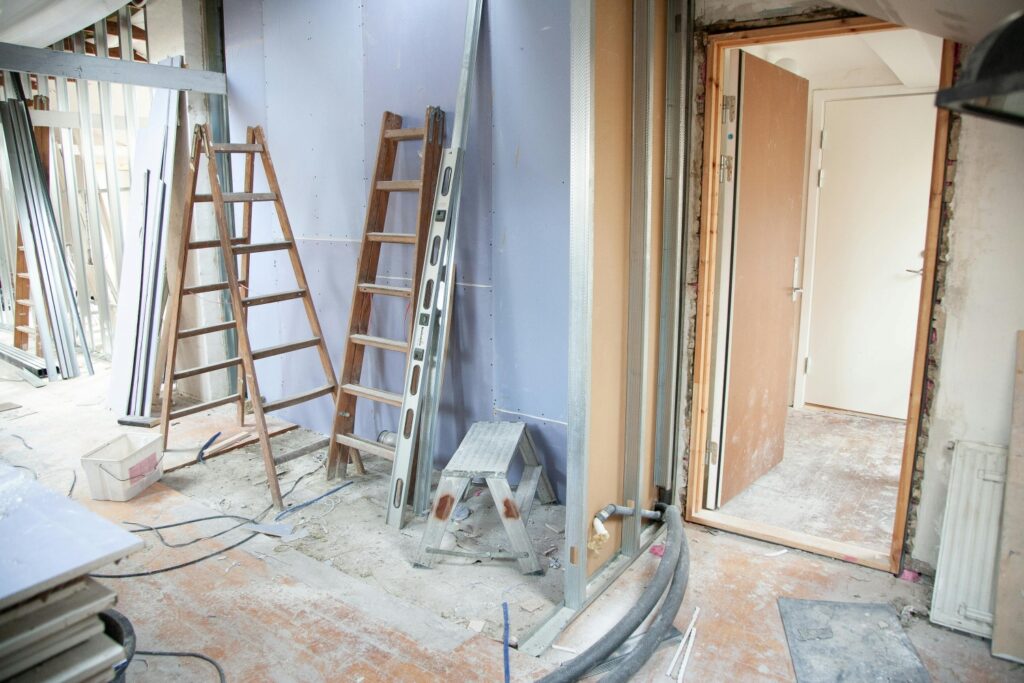The landscape for construction defect claims in Arizona could see some significant changes in 2025. Arizona Senate Bill 1641 (SB 1641) introduced in 2024 proposes new limitations that could significantly alter the way builders, contractors, developers, and homeowners handle construction defect legal disputes.
Right now, construction defect lawsuits can be filed up to eight years after a project is substantially completed. SB 1641 proposes cutting that period in half, with an option for a two-year extension if issues emerge in the fourth year. Condo associations would also need approval from two-thirds of unit owners before initiating litigation.
These proposed changes are already sparking strong opinions on both sides. While some argue the bill will reduce frivolous lawsuits and lower construction costs, others warn that homeowners and condo associations will face new challenges in holding builders accountable. As this legislation moves forward, understanding the details is critical. Here’s what you need to know about potential changes to Arizona construction defect laws in 2025 and beyond.
What Constitutes a Construction Defect in Arizona?
A construction defect can be anything that compromises a building’s functionality, safety, or durability due to design flaws, poor workmanship, defective materials, or faulty installations.
Common defects include:
- Cracked foundations and structural instability
- Electrical and plumbing failures
- Improperly installed roofing leading to leaks and water damage
- Poor drainage systems causing erosion or flooding
- HVAC malfunctions that create unsafe living conditions
Under current Arizona construction defect litigation rules, property owners have a window of time to pursue legal action against builders and developers. That would change significantly if the current proposed amendments to SB 1641 become law.
What Arizona’s Construction Laws Look Like Today
Under existing statutes, construction defect claims are governed by:
- The Statute of Repose – Homeowners and condominium associations currently have eight years from the completion of a project to file a lawsuit for construction defects.
- Legal and Financial Implications – Builders face longer-term legal exposure, leading to higher insurance costs and an increase in defect-related litigation.
If SB 1641 passes, these longstanding rules will be significantly altered, creating new responsibilities and challenges for everyone involved in the construction process.
Key Changes Proposed in SB 1641
A Reduced Timeline for Filing Construction Defect Lawsuits
Right now, property owners in Arizona have years to identify and litigate construction defects. That timeframe is about to shrink.
- Current Law: Allows defect claims for up to eight years after project completion.
- Proposed Change: The timeframe for filing defect claims would change to four years, with an option to extend it by an additional two years if issues are identified during the fourth year.
This means builders and developers will have less long-term liability, but homeowners and condo associations will need to act much faster to address construction defects before time runs out.
New Approval Rules for Condo Association Lawsuits
Condominium associations currently do not need unit owner approval to file a lawsuit over construction defects. That would change under SB 1641.
- New Requirement: Before taking legal action, a condo board must secure approval from two-thirds of unit owners.
For developers, this may reduce the number of lawsuits they face. For condo boards, the new rule could create hurdles in addressing construction defects, particularly if owners are reluctant to get involved or if securing enough votes proves difficult.
Who Will Be Most Affected by SB 1641?
The proposed changes in SB 1641 will have far-reaching effects across the construction industry, shifting legal responsibilities for builders, homeowners, and insurers. While the bill aims to reduce litigation, it also introduces new challenges that could reshape how construction defects are addressed.
Impact on Builders and Contractors
- A shorter legal window may reduce long-term liability and lower insurance premiums.
- Encourages proactive construction defect detection and resolution to avoid future claims.
Although these changes could mean fewer lawsuits, the claims that do arise may be more complex, requiring stronger legal strategies and documentation.
Impact on Homeowners and Condo Associations
- Homeowners must act quickly to identify and document defects before the filing window closes.
- Condo boards may face difficulties securing the required two-thirds approval for litigation.
With stricter legal timelines and procedural hurdles, alternative dispute resolution (ADR) methods like mediation or arbitration may become a more common way to settle defect disputes. As such, more cases could be resolved through pre-litigation settlements rather than going to court.
As SB 1641 reshapes the legal landscape, builders, homeowners, and insurers will need to adjust their strategies to navigate the new challenges and opportunities it presents.
The Ongoing Debate on Time Limitations for Legal Actions
Senate Bill 1641 (SB 1641) and the specific proposed amendments to A.R.S. 12-552 and 33-1242 has sparked a significant debate within Arizona’s construction industry, with stakeholders expressing diverse perspectives on its potential impact.
Supporters of SB 1641 argue that the bill will:
- Reduce unnecessary lawsuits: By shortening the statute of repose from eight to four years, the bill aims to decrease prolonged legal exposure for builders and contractors, potentially lowering litigation costs.
- Encourage prompt defect resolution: A reduced timeframe may incentivize homeowners to identify and report construction defects earlier, leading to quicker repairs and maintenance.
- Protect contractors from extended liability: Limiting the period during which legal action can be initiated provides greater certainty and financial stability for construction professionals.
Opponents of SB 1641 contend that the bill will:
- Limit homeowner protections: Shortening the statute of repose may not provide sufficient time for homeowners to discover latent defects, potentially leaving them without recourse for issues that manifest after four years.
- Hinder condominium associations: Requiring a two-thirds majority approval from unit owners before initiating legal action could complicate efforts to address construction defects, especially in larger associations.
- Allow developers to evade responsibility: The reduced timeframe might enable some developers to avoid liability for defects that become apparent only after the shortened statute of repose has expired.
The resolution of this debate will play a crucial role in shaping the future of construction defect claims across Arizona. On February 7, 2024, SB 1641 advanced to its second reading in the Senate and was sent to the Judiciary Committee for further review. Stakeholders are advised to monitor the bill’s progress and prepare to adjust their legal strategies accordingly. The final version could include modifications before it is signed into law, but if it passes, the new regulations are expected to take effect in 2025.
Builders, developers, and property owners should start adjusting their legal strategies now to avoid potential pitfalls once the law is in place. Bookmark this page and we’ll provide updates on the proposed legislation.
How RSN Law Can Help with Arizona Construction Defects
With decades of experience in Arizona construction law, RSN Law is well-equipped to help industry professionals and homeowners navigate these legislative changes. Our team provides legal guidance on:
- Builders and Contractors: Strategies to reduce liability exposure and ensure compliance with the new law.
- Homeowners and Condo Associations: Understanding rights and exploring alternative legal options.
- Insurance and Legal Professionals: Adapting to policy changes and revised liability coverage.
Arizona’s SB 1641 could fundamentally change how construction defect claims are handled. Whether you’re a contractor, developer, or homeowner, preparing for these legal shifts now is essential.
Call RSN Law today at 480-712-0035 or use our Contact Us page here to schedule an initial consultation.
RSN Law intends this article to be for informational purposes, not to be relied on a specific legal matter, and does not create an attorney-client relationship.

